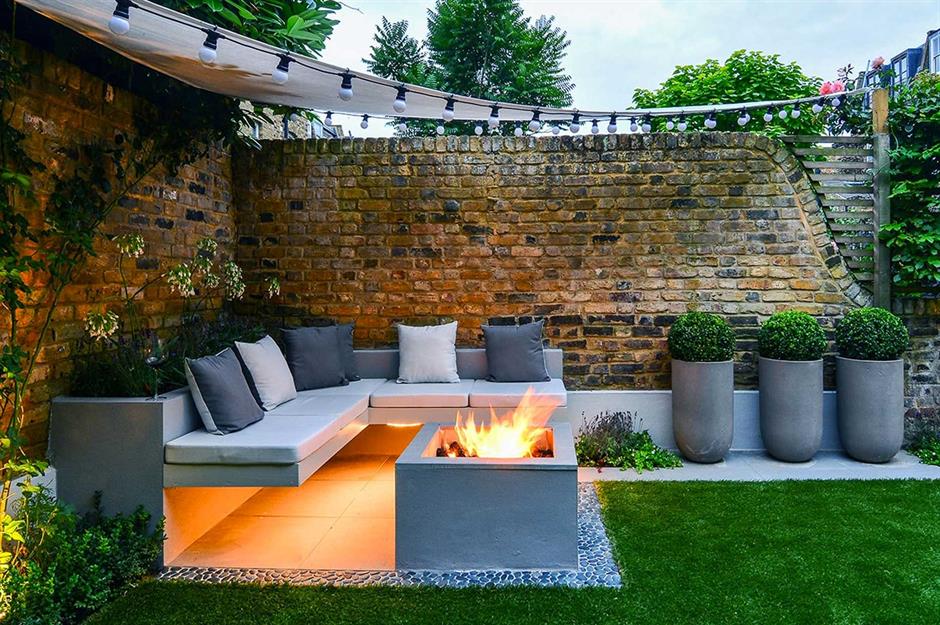It’s easier than you might believe to create a landscape that doesn’t pollute the environment.
The upkeep of natural grass and vegetation, however, can be a burden for homeowners in hot, dry areas. In these dry regions, watering grass and other flora is sometimes a waste of scarce resources. Furthermore, the chemicals used to fertilize and treat natural lawns can run off and pollute local water supplies.
Fortunately, there are many ways to have a gorgeous garden that doesn’t put the environment at risk. Here are some tips…
Alter the Turf Size in Your Garden
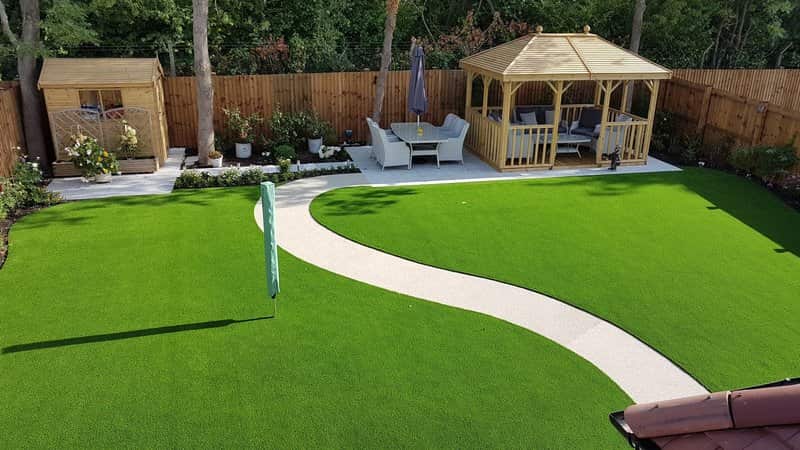
Artificial grass like Zeon Joysia makes home landscaping easier and more efficient than ever before. This innovative new material, made up of a mix of polyethylene, polypropylene and nylon fibers, is highly durable and perfect for creating beautiful outdoor spaces without worrying about water damage or messy upkeep.
Zeon Joysia artificial grass can be used in gardens, around patios, on terraces and even in lawn areas to make them look lush and vibrant all year long – no matter the weather! Its easy installation process makes it a great choice for DIYers on a budget as well, eliminating the need for expensive gardeners or landscape workers. Zeon Joysia artificial grass is an ideal way to spruce up your outdoor areas with ease.
A smaller carpet of turf is the most effective strategy for conserving water in landscaping. Corners and edges of the grass should have huge flower beds. This uses up otherwise usable lawn space while also providing welcome depth and a wonderful place to sit.
Also, using ground cover plants or artificial grass instead of natural turf is an excellent option. These include vinca, pachysandra, and ajuga. If you live in an area with a lot of foot traffic, such as by the pavement or near a driveway, consider using these low-maintenance plants. Artificial grass is easy to upkeep, and doesn’t require water or chemicals to stay green all year round.
Grow a Tree in Your Garden
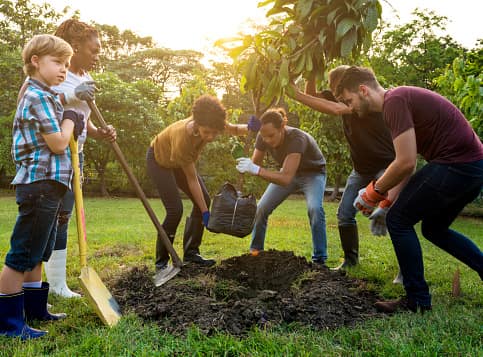
Why not plant a tree if you have the space? According to statistics, landscapes with trees are much more appealing to nature compared to areas without. Trees can also provide other advantages such as shade and sound isolation. Likewise, native species will provide the most benefits.
Furthermore, gardens with trees are excellent at countering the problem of soil erosion. This is crucial during heavy rains when water can quickly strip away unprotected topsoil. The deep roots of trees hold firm against this onslaught, keeping the soil in place and helping to prevent floods.
Create Wildlife Habitats in Your Garden
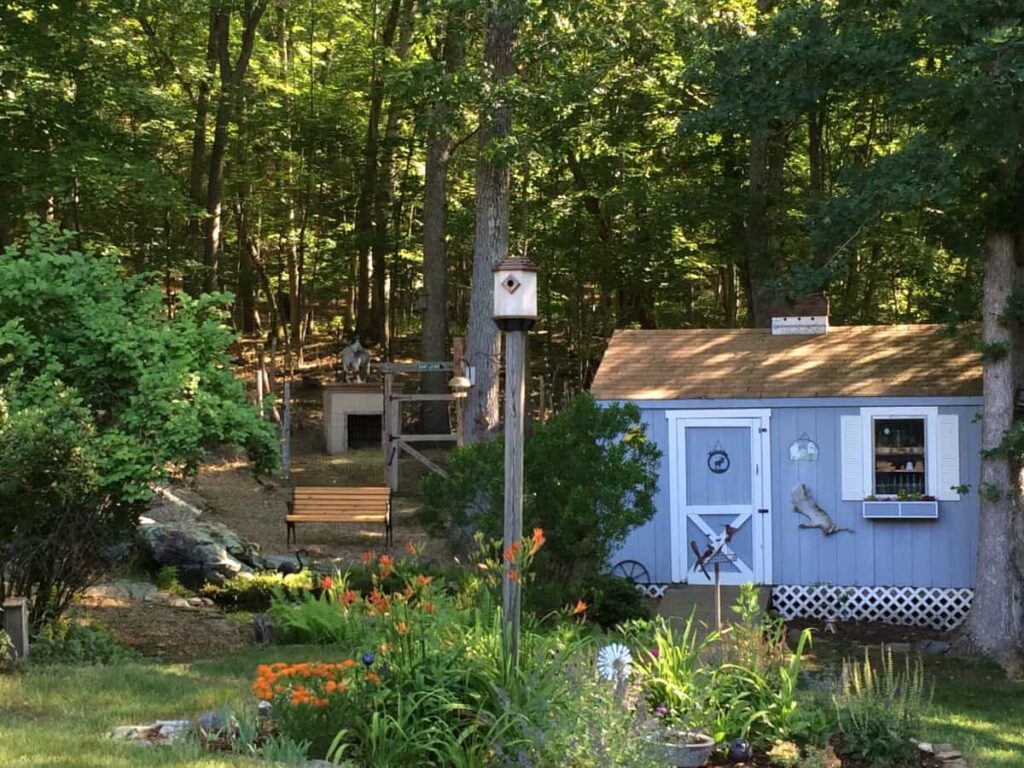
You can support the environment even more by offering some wildlife cover. From bird houses to insect accommodations, hedgehog burrows to bee hives, there really are numerous options for making your yard more welcoming to animals. This means that you can provide a home for creatures that are struggling to find their own space, as well as help with pollination and seed dispersal.
Not only is this great for the environment, but it can also be really enjoyable to watch all the extra activity in your garden! Send an invitation template to your friends and family over to share in the experience.
Eliminate Waste in Your Garden
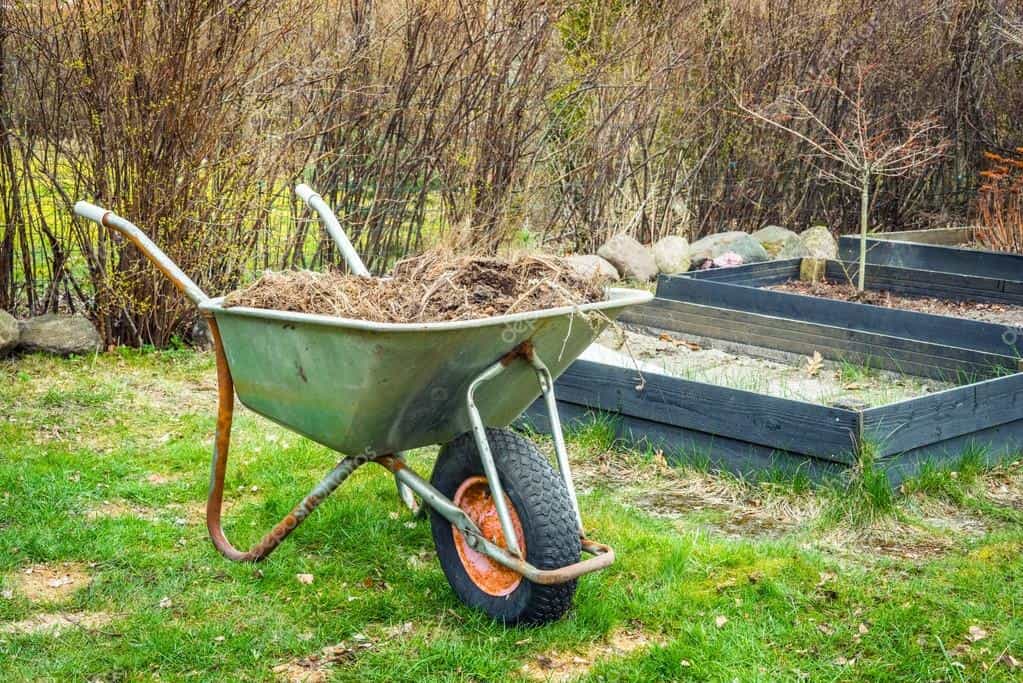
When working in the garden, it is simple to generate useless waste, but fortunately, it is also straightforward to discover substitutes that are less threatening to the environment. For instance, you can conserve water by gathering rainwater rather than drawing it directly from the tap.
Instead of collecting leaf litter, you may keep them in a secluded area so that they can serve as a cosy haven for tiny creatures during the winter. You will be left with natural leaf mould once they have dissolved, which is an excellent fertiliser.
Enhance the Soil in Your Garden

Your topsoil will remain in what gardeners refer to as “grateful intention” if you use a lot of fertiliser and/or well-rotted excrement. This results in robust plants that are resistant to pests and illnesses as well as healthy dirt packed with vital microbes. Composting is also a sponge-like water absorber, making it useful in sandy soils with good drainage.
When planting, scatter a generous amount between vegetation or dig in a big barrel full every few yards; this prevents fragile soils from being carried away in intense rainfall.
Raise Free-range Chickens
Pest management can be a particularly cumbersome task. If you happen to deal with a lot of pests in your garden, raising chickens can be the natural solution to keep the bugs off. These birds love to eat protein-packed critters, helping to control a wide range of insects around your home and yard.
They’ll take care of the garden’s crickets, grasshoppers, snails, and other pests. They also love to eat weeds and serve as post-harvest garden bed gleaners. Just be sure to use good-quality poultry netting when you have plants nearby, so they don’t escape and nibble at your precious leaves and flowers.
Happy Gardening!
Remember to always be mindful of the environment when gardening, and you’ll be able to have a beautiful garden while preserving our planet. Hopefully, this article has given you some ideas on how to do just that. Thanks for reading!

